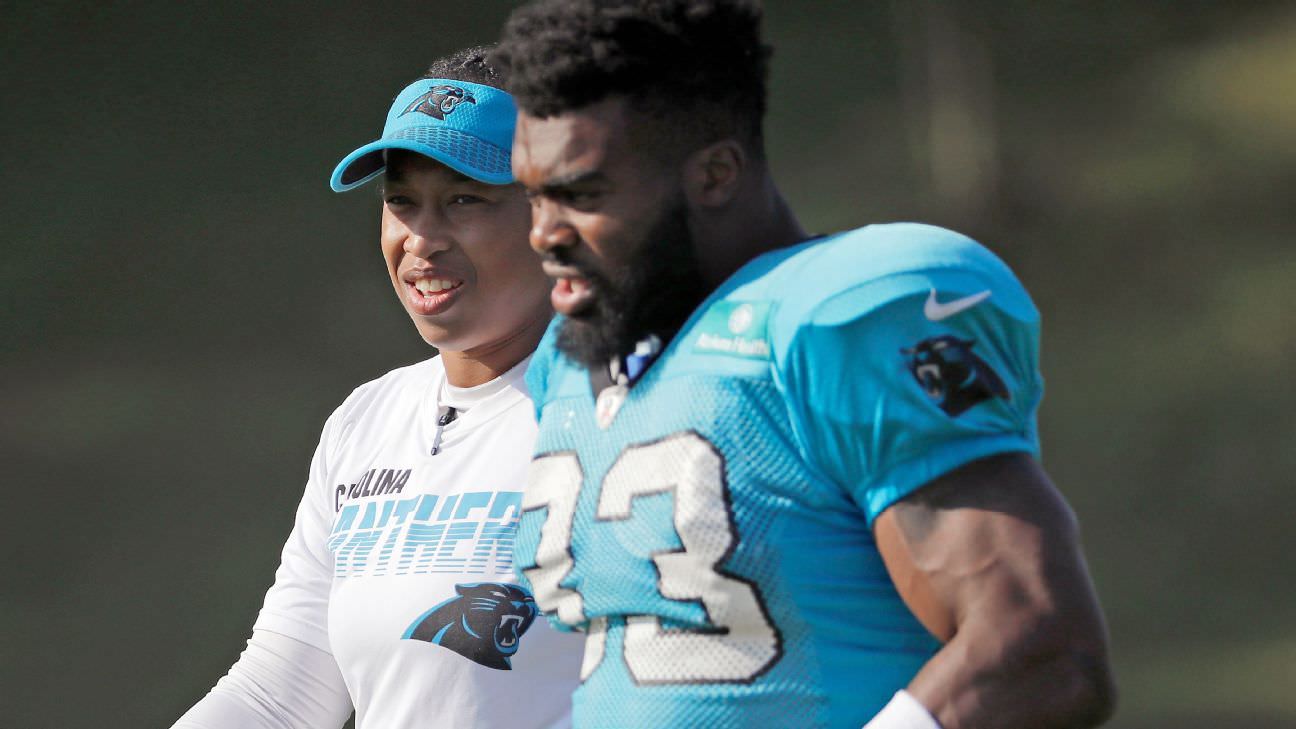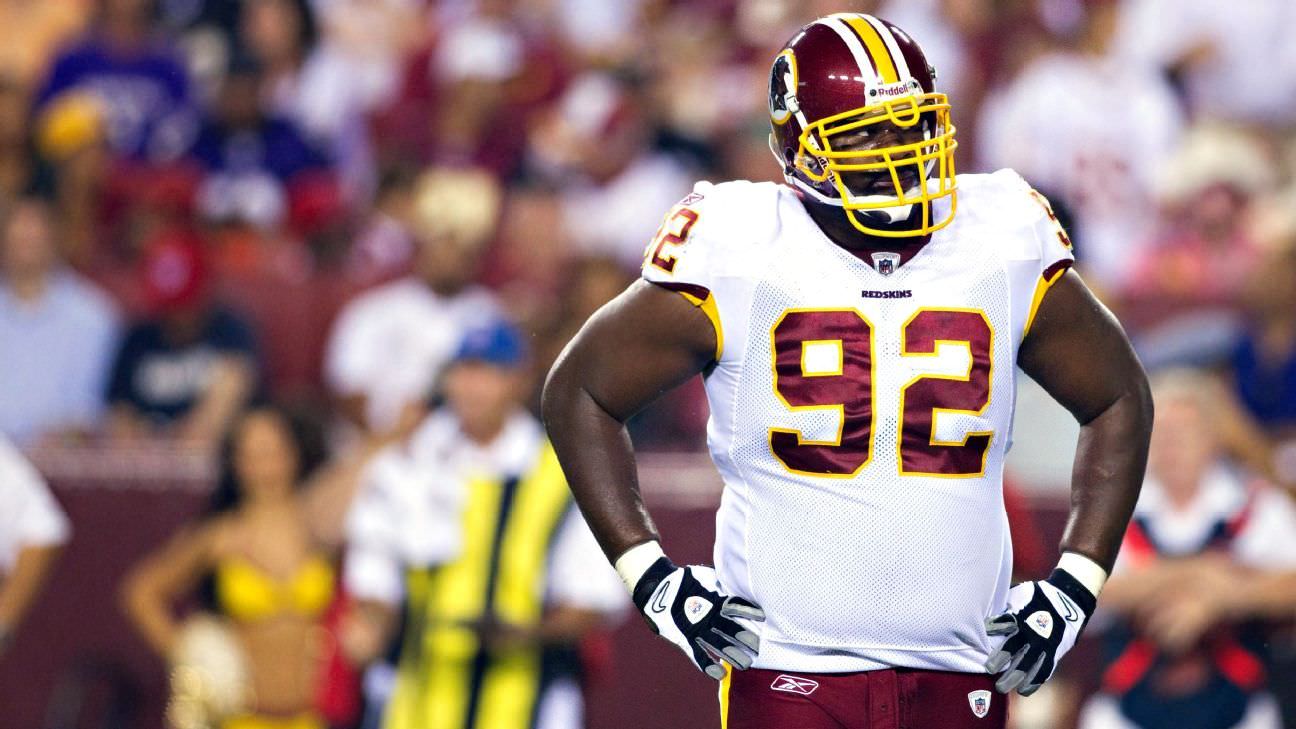Parceiros da Megatron na pesquisa de maconha para CTE

Translating…
11:00 PM ET
-

Michael RothsteinESPN Staff Writer
- Previously covered University of Michigan for ESPN.com and AnnArbor.com
- Also covered Notre Dame for Fort Wayne Journal Gazette
FormerDetroit Lionswide receiverCalvin Johnsonand his business partner, ex-NFL linemanRob Sims, have partnered with Harvard University to research the benefits of medical marijuana in the areas of chronic traumatic encephalopathy, more commonly known as CTE, and the management of pain.
Johnson and Sims co-own the cannabis company Primitive. They announced the partnership, which includes a six-figure donation with the option for future money, to the International Phytomedicines and Medical Cannabis Institute at Harvard during the Cannabis Capital Conference in Detroit on Thursday.
“We can be in position to develop a treatment for CTE,” Sims told ESPN on Thursday night. “There’s been suggestion that CBD [cannabidiol, a compound in cannabis] and stuff can help cognitive disease, and we think that potentially there could be a treatment going forward that we can produce.”
Sims and Johnson were part of Harvard’s Global Catalyst Health Summit in May, when they agreed to make the commitment to give research money and start a consortium with the brain-performance company NESTRE to work with the institute and Dr. Wilfred Ngwa. NESTRE has worked on brain training with NFL athletes, including former quarterback and current ESPN analyst Josh McCownlater in his career.
As part of the partnership, Harvard will do medical research for Primitive, run clinical trials related to CTE and pain and also will provide quality assurance from Harvard Medical School for any products the company creates. As former NFL players, Sims and Johnson say they have researched studies on CTE and football that show the disease as prevalent among former players. CTE can be diagnosed only postmortem.
“As being former athletes, we know there’s some sort of CTE or some sort of damage, 99% I think they say in the study,” Sims said. “So that means I may be walking around with some form of it. It’s really about the hope. Just providing hope, improving the game, making the game safer for former players after they are done.
“Really just being able to help people. I’m a second-generation NFL kid; both my father and father-in-law [played]. I’ve seen the good, the bad and the ugly of what it looks like when you’re done playing ball. If we can help this facet of people suffering from CTE or other cognitive disease, that’s the real goal here.”
This is the beginning of what Johnson and Sims are hoping is a long-term partnership with the institute. If they are able to help people, they figure the business portion of it will follow.
“What our mission is going to be is just to improve quality of life,” Sims said. “So, you know, with NESTRE and the brain training and the human optimization, we believe there’s a way to continue to improve your brain function through working out.
“Then, from our position, with that data that we’ll be able to gain, we believe that we can produce plant medicines, or cannabis, using nanotechnology to deliver payloads to areas where people would have symptoms of CTE, like mood and anxiety and memory loss. That’s the goal in the end.”
Sims said there isn’t a set date for the clinical trials to begin, but he is hopeful they can start during the first quarter of 2020.
This is the latest business venture for Sims and Johnson, who started working together as a real estate company and also opened a consulting firm before choosing to go the cannabis route after Michigan legalized marijuana in November. Their first attempt to get a license was rejected by the state, but those issues have since been rectified, and their first cultivation facility is scheduled to open within the next month or so in Webberville, Michigan.
That’s a long way from their beginnings, when they never imagined they would be partnered with Harvard.
“Never in a million years, man,” Sims said. “I was trying to get Calvin to flip one or two houses with me two years ago, and then we ended up getting into cannabis real estate, and then we ended up getting into the licensing part of it, and now we’re getting into the medicine part of it.
“So it’s been quite a journey, and I’m just looking forward to the future.”



